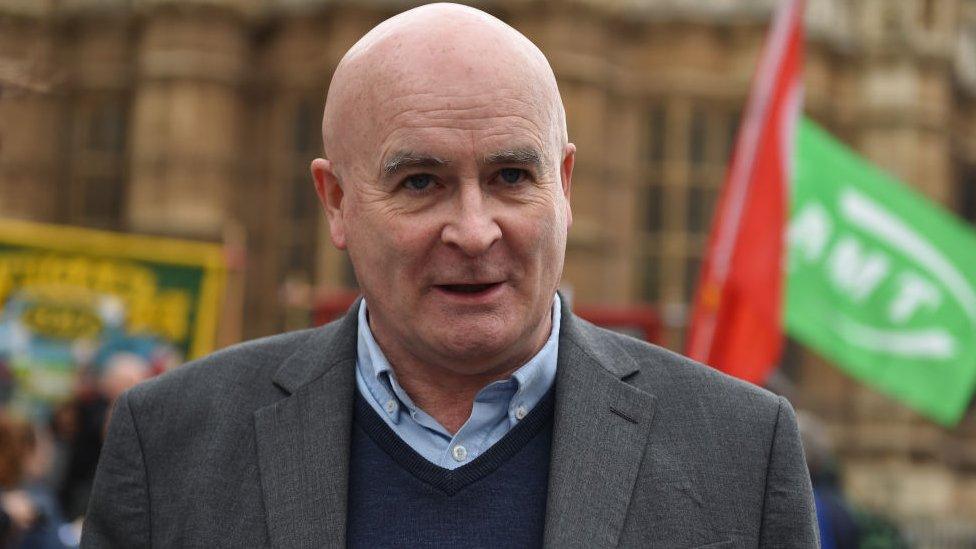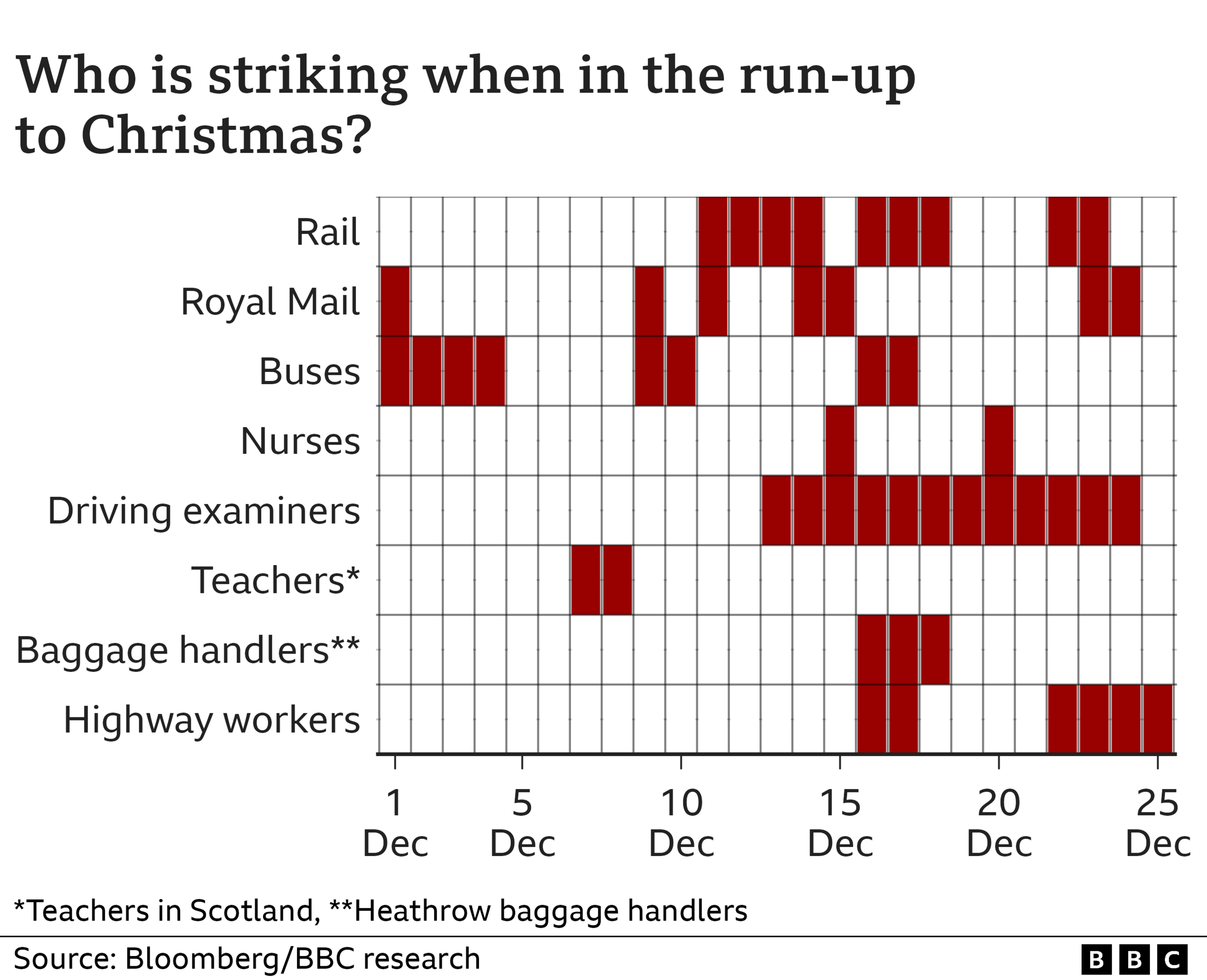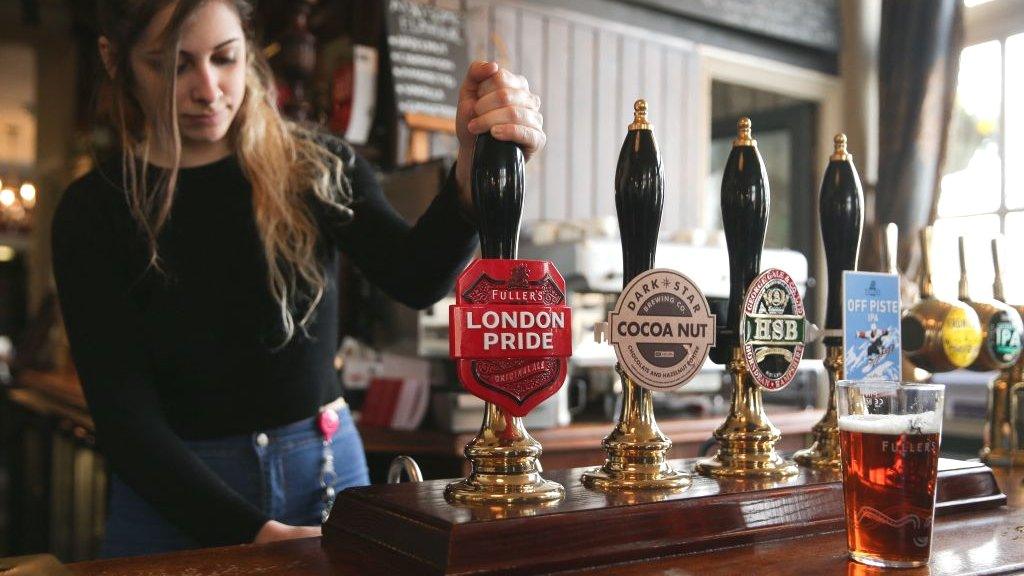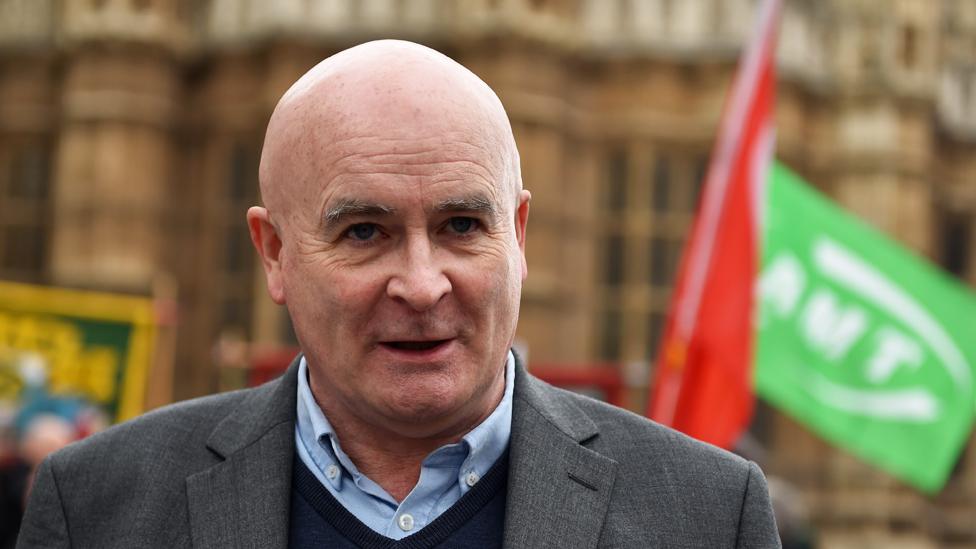Train strikes: RMT union hopeful of offer to end rail dispute
- Published

RMT union boss Mick Lynch has said he is hopeful that the government will make an offer that could end the planned rail strikes.
On his way into a meeting with Rail Minister Huw Merriman on Friday he said the government would "hopefully… put an offer on the table".
He said he expected the offer to be "modest" but said the dispute was "definitely moving".
Talks have concluded for the day but will continue over the weekend.
Ahead of the meeting, Mr Lynch said: "It's definitely different to the last six months."
However, he suggested that the more positive overtures from the government might simply be "window dressing".
After the meeting between the RMT, Network Rail and the Rail Delivery Group, Mr Merriman said it had been a "constructive and open conversation about the challenges facing our railways".
"I was clear that the parties should work towards creating a modern and financially sustainable railway which provides value for money for all passengers and taxpayers," he said.
"Everyone agreed to continue talking to try and resolve these long-standing issues and bring an end to this dispute."
On Thursday, Transport Secretary Mark Harper said he was trying to "encourage" a deal between employers and trade unions on reforming the rail industry and bringing an end to the strikes.
He said an agreement to "hammer out a deal on reform of the industry" would benefit rail users and train staff.
A number of unions have announced strikes and other forms of industrial action across the rail network in December, which could cause crippling periods of disruption in the run-up to Christmas.
The RMT union is planning industrial action across four 48-hour periods on 13-14 and 16-17 December, and 3-4 and 6-7 January, which will hit Network Rail and 14 train operators. RMT members will also operate an overtime ban between 18 December to 2 January.
TSSA workers at Avanti West Coast will strike on 13-14 and 16-17 December.
On Friday, the TSSA also served notice for strikes in a further six train operating companies and Network Rail.
Also on Friday, the Unite union said its members employed by Network Rail in electric control rooms would join the strikes, adding that the workers had not received a pay increase for three years.
"It is totally unforgivable that the government thinks it is acceptable to implement a three-year pay freeze on our members who play a critical role in keeping the rail network operating," said Unite general secretary Sharon Graham.

Road users also face potential disruption over the Christmas period after workers at the Public and Commercial Services (PCS) union announced 12 days of strike action.
The National Highways employees, who plan, design, build, operate and maintain the country's roads, will take part in a series of staggered strikes from 16 December to 7 January.
The PCS said the action came after 124 government departments and other public bodies voted for strike action in a row over pay and conditions.
"We know our members' action could inconvenience travellers who plan to visit their relatives over the festive period, but our members have been placed in this situation by a government that won't listen to its own workforce," said PCS general secretary Mark Serwotka.
It is understood that 124 frontline National Highways staff will strike, out of 1,500.
The PCS said it would announce strikes in other departments, including the Home Office, in the next few weeks.
Related topics
- Published9 May 2024

- Published29 November 2022

- Published23 November 2022
